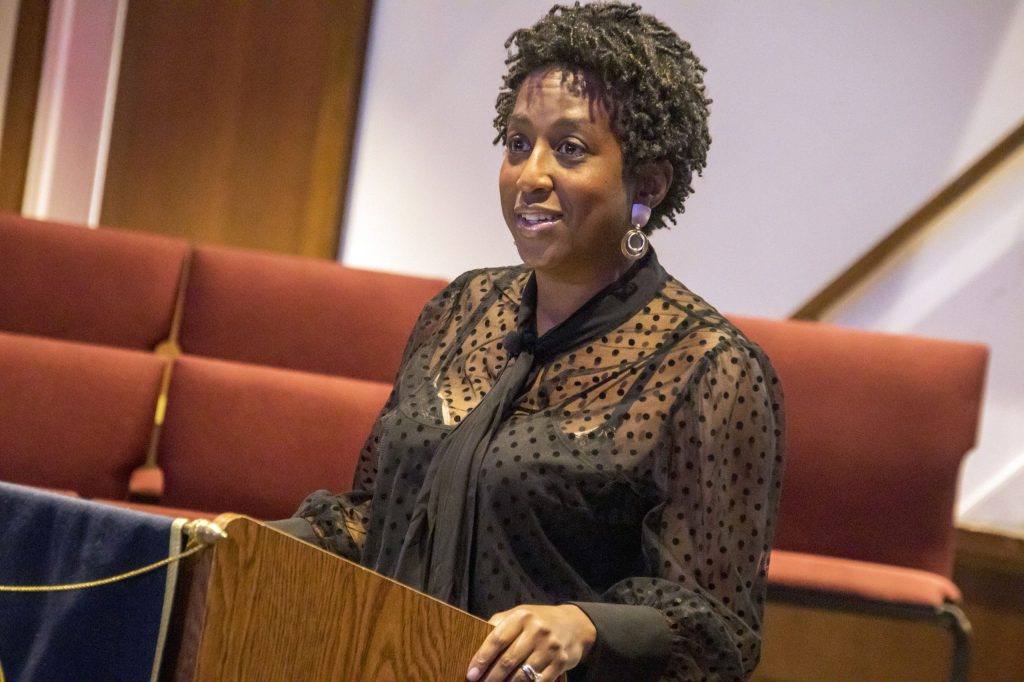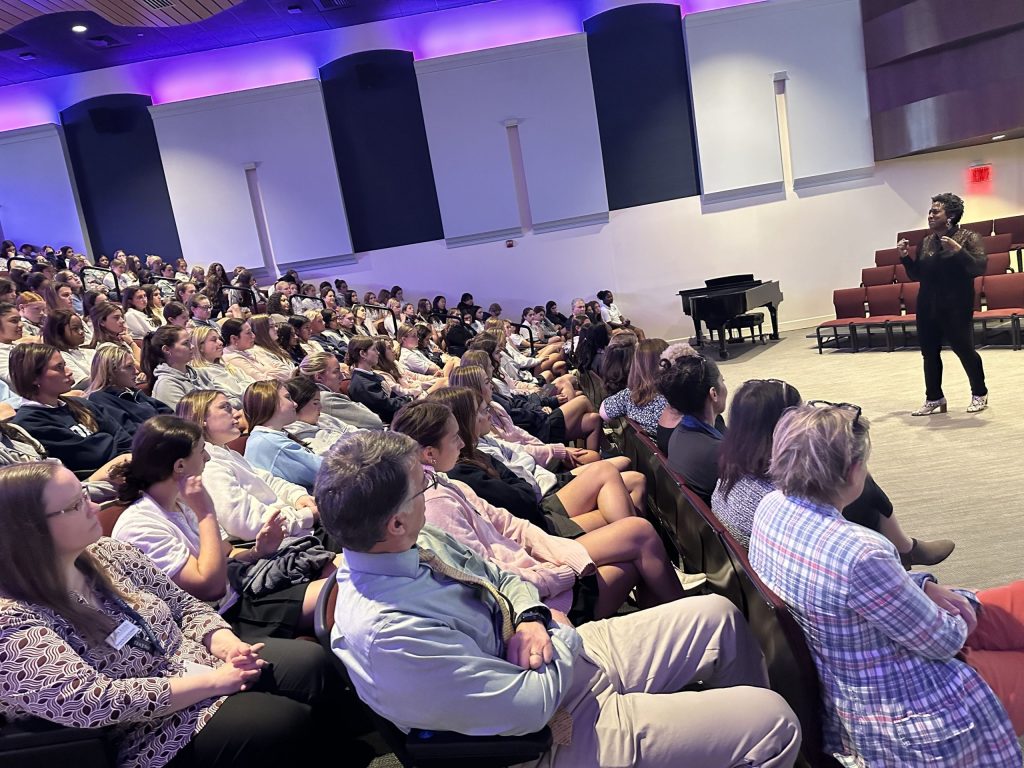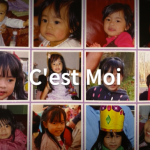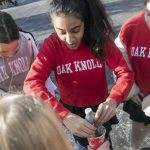Acclaimed Storyteller Doreen Oliver Speaks at Oak Knoll
 Writer, performer, essayist, entertainment producer, and sought-after speaker Doreen Oliver shared her insights with Upper School students in a special assembly on May 16. She focused on the stories we tell ourselves and to others, and the hidden agendas and nuanced meanings we sometimes avoid, in order to make ourselves feel better or discount the deeper nature of others. Following her visit with students, Oliver addressed parents and community members in a separate talk entitled, “Building Community: Friendships, bonds, and how to reconnect when a relationship feels broken,” as part of the Oak Knoll Parents’ Association ongoing Visiting Speaker Series.
Writer, performer, essayist, entertainment producer, and sought-after speaker Doreen Oliver shared her insights with Upper School students in a special assembly on May 16. She focused on the stories we tell ourselves and to others, and the hidden agendas and nuanced meanings we sometimes avoid, in order to make ourselves feel better or discount the deeper nature of others. Following her visit with students, Oliver addressed parents and community members in a separate talk entitled, “Building Community: Friendships, bonds, and how to reconnect when a relationship feels broken,” as part of the Oak Knoll Parents’ Association ongoing Visiting Speaker Series.
“Stories are powerful — whether it’s feature films, documentaries, TV shows, plays, or books — there are so many good stories. Stories can make someone laugh, cry, feel empathy, or get angry. They can persuade people to think a certain way or confirm the feelings of others,” Oliver explained to the students. “But I’m not interested in all of those other stories right now. I’m interested in the stories that we make up and tell ourselves. I’m interested in speaking about the stories we tell ourselves about other people to make us feel good, make us feel justified, and to make us feel that life in our world is simpler than it really is. I’m interested in those stories we tell ourselves even when we have no evidence that those stories are true.”
Oliver went on to discuss the four characteristics of stories that we should all look for and keep in mind if we are really searching for truth and authenticity. For starters, in stories that reflect reality and the true human experience, the protagonist is always flawed. We all have a vulnerable quality or some trait that makes us less than perfect. Next, those who antagonize us are not simply villains — most people have layers of nuance and backstory. More often than not, our antagonists are multidimensional if we have the empathy to look for deeper meaning in their actions.
In addition, in real life, plots are never simple. Everybody has some sort of baggage they are carrying around that they are not necessarily eager to show. When we have a conflict with someone, it is important to figure out what else might be going on beneath the surface or what other factors might be occurring that could alter the story. Finally, the best stories, whether they are the ones we hear, or the ones we tell about ourselves or others, should expand the way we look at the world. They should make us wonder.
“The choices we make when we create and consume stories have ripple effects,” continued Oliver. “The stories that we tell ourselves about each other affect other people — sometimes, people we may not even know. The best stories expand the way we think, expand the way we feel, and broaden our compassion. They give us an opportunity to see the world differently. Stories open our eyes and help us see things we might have otherwise overlooked. The best stories challenge us to feel for other people and ask if there is something I can do to repair a relationship or something I can do to make our community stronger?”
 Oliver offered sage advice to the gathered students in her conclusion to the assembly. Acknowledging that Oak Knoll students are uniquely privileged and correspondingly responsible to seek a positive impact on their world, she concluded, “Oak Knoll students have a voice. You can be the person that stands up and helps someone else. You can be the person that makes an incomplete story complete. You can be the person that makes a false story, a true one. You can make someone feel like they belong. You can even save someone’s life. I wish that you all become bright, wonderful, charismatic leaders — leaders who go out in the world and do just that.”
Oliver offered sage advice to the gathered students in her conclusion to the assembly. Acknowledging that Oak Knoll students are uniquely privileged and correspondingly responsible to seek a positive impact on their world, she concluded, “Oak Knoll students have a voice. You can be the person that stands up and helps someone else. You can be the person that makes an incomplete story complete. You can be the person that makes a false story, a true one. You can make someone feel like they belong. You can even save someone’s life. I wish that you all become bright, wonderful, charismatic leaders — leaders who go out in the world and do just that.”
–
Doreen Oliver’s work illuminates the beauty, heartbreak, and unpredictability of life, often through the lens of parenthood. Her critically-acclaimed one-woman show, “Everything Is Fine Until It’s Not,” debuted at the New York International Fringe Festival (FringeNYC) and broke the record for the fastest sell-out of a run in the festival’s 20-year history. Her essays on autism, racism, and the chaos and contradictions of motherhood have appeared in the New York Times, Washington Post Sunday Magazine, Audible, and elsewhere. She is a graduate of Yale University and Stanford Graduate School of Business, where she was a Charles Bonini Fellow. She is currently working on a novel and other storytelling projects.






